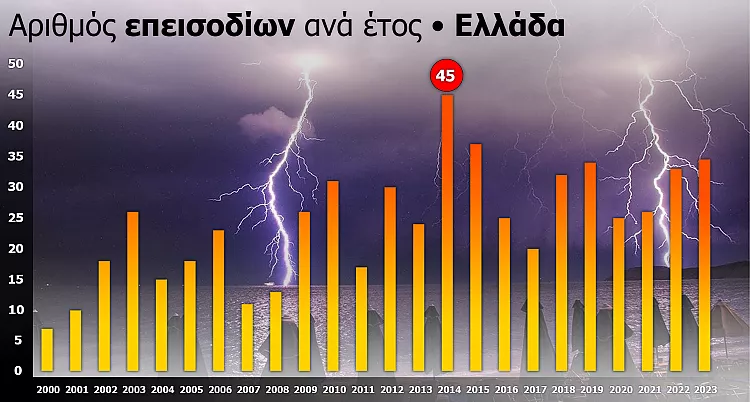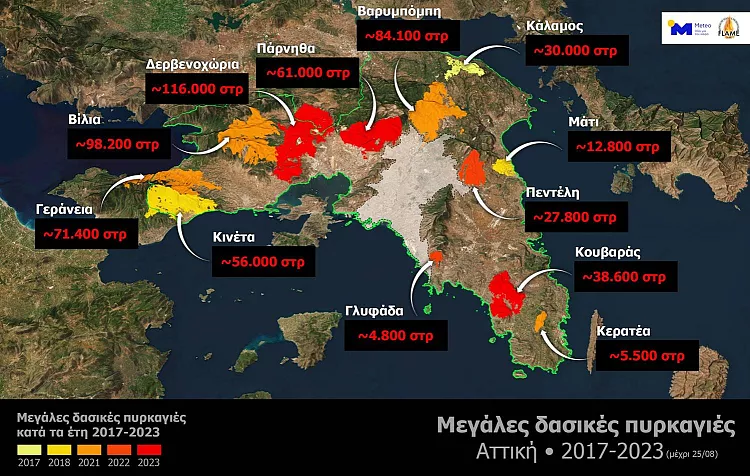Greece is enduring a challenging summer with severe forest fires ravaging parts of the country, particularly northeast of Athens.
Dr. Kostas Lagouvardos from the National Observatory of Athens describes the Mediterranean as a “hot spot of the climate crisis,” highlighting the region’s acute vulnerability to extreme weather.

The fires, which began near Varnava village on August 11, have forced evacuations of hospitals and residential areas, fuelled by tinder-dry forests left vulnerable by intense heatwaves. June and July were recorded as the hottest months ever in Greece, contributing to several fatalities among tourists and severe fires last year.

The Mediterranean, warming faster than other regions, has seen temperatures rise more than 1.5°C over the past 30 to 40 years. This rapid warming is exacerbating extreme weather events, including more frequent and intense marine heatwaves, which drive severe storms and “medicanes” — Mediterranean hurricanes.

Greece’s numerous islands and diverse microclimates further complicate disaster management, with limited infrastructure hampering evacuation and relief efforts. The presence of dry, hot winds from the Sahara and the increased frequency of strong Etesian winds have created perfect conditions for the spread of wildfires.

In response, Greece established the Ministry of Climate Crisis and Civil Protection in 2021, which has implemented new laws for biomass removal and is exploring advanced technologies like drones to combat fires. The country is also integrating with the European emergency number 112 to enhance coordination and response efforts.
(Source: Euronews)

